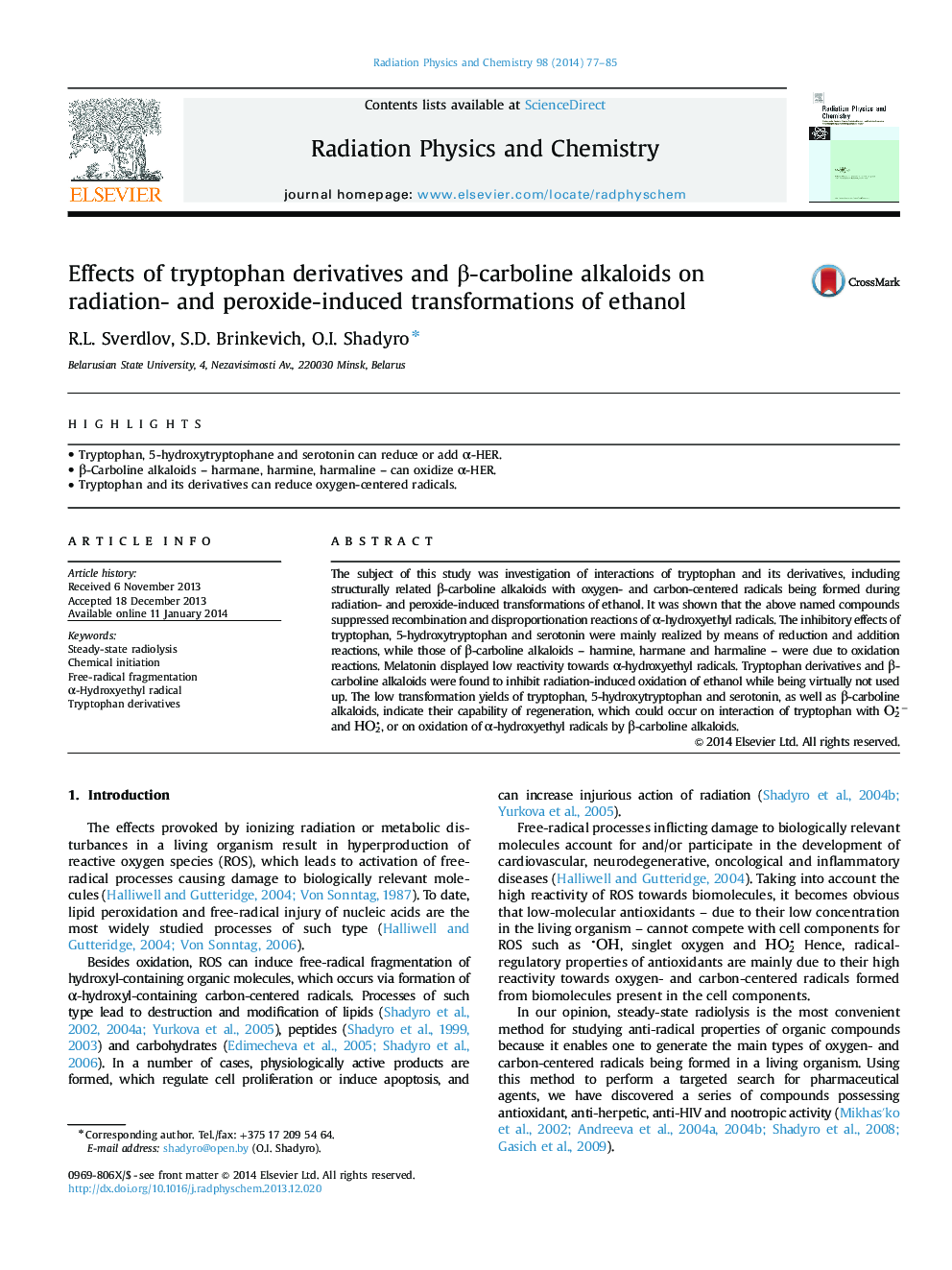| Article ID | Journal | Published Year | Pages | File Type |
|---|---|---|---|---|
| 1886117 | Radiation Physics and Chemistry | 2014 | 9 Pages |
•Tryptophan, 5-hydroxytryptophane and serotonin can reduce or add α-HER.•β-Carboline alkaloids – harmane, harmine, harmaline – can oxidize α-HER.•Tryptophan and its derivatives can reduce oxygen-centered radicals.
The subject of this study was investigation of interactions of tryptophan and its derivatives, including structurally related β-carboline alkaloids with oxygen- and carbon-centered radicals being formed during radiation- and peroxide-induced transformations of ethanol. It was shown that the above named compounds suppressed recombination and disproportionation reactions of α-hydroxyethyl radicals. The inhibitory effects of tryptophan, 5-hydroxytryptophan and serotonin were mainly realized by means of reduction and addition reactions, while those of β-carboline alkaloids – harmine, harmane and harmaline – were due to oxidation reactions. Melatonin displayed low reactivity towards α-hydroxyethyl radicals. Tryptophan derivatives and β-carboline alkaloids were found to inhibit radiation-induced oxidation of ethanol while being virtually not used up. The low transformation yields of tryptophan, 5-hydroxytryptophan and serotonin, as well as β-carboline alkaloids, indicate their capability of regeneration, which could occur on interaction of tryptophan with О−2 and НО2, or on oxidation of α-hydroxyethyl radicals by β-carboline alkaloids.
